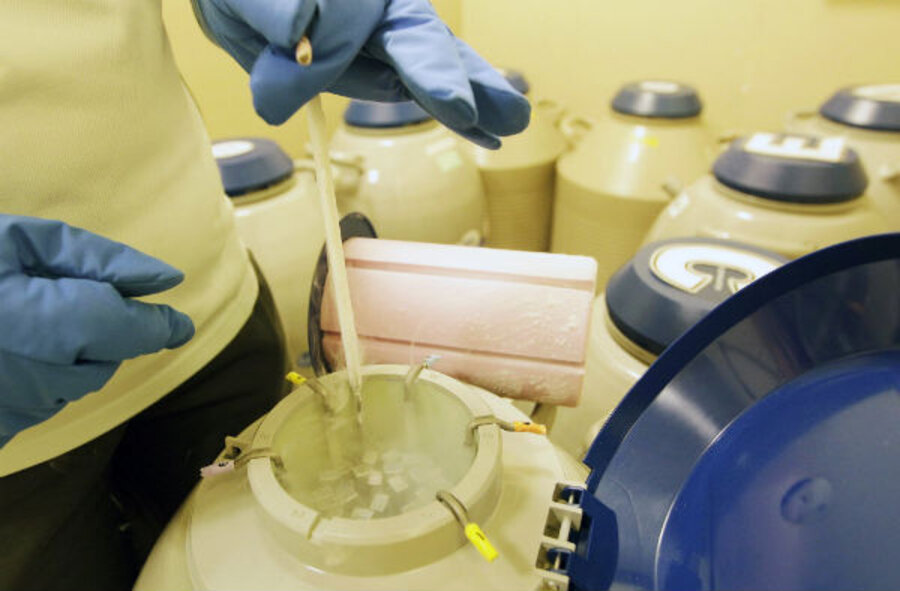Taiwanese career women postpone motherhood by freezing eggs
Loading...
| Hsinchu, Taiwan
Caught between traditional expectations and career pressures, working women in Taiwan are increasingly opting to freeze their eggs at fertility clinics as they postpone marriage and motherhood.
Women play a big part in Taiwan's workforce, trailing only New Zealand and Australia for female employment among 14 countries in Asia, a recent report by MasterCard showed.
A slowdown in the economy has made job security an even more pressing priority. That has been a factor in pushing the East Asian island's average marriage age to 30 these days, from 24 in the 1980s, and in driving the interest in egg freezing.
"I was sure that I would probably marry late and I was sure that I wanted to become a mother," said Linn Kuo, 34, who chose to freeze her eggs three years ago.
Ms. Kuo, a manager at Cisco System Taiwan Ltd, has a well-paid job that allows her to work from home. While her career has had a smooth trajectory, Kuo said she has not been as fortunate in love.
After her mother died, she realized the importance of having the support of children in later life.
"I already had my conclusion," she said. "So I did some research and decided to freeze my eggs."
Lai Hsing-hua, the clinic director at e-Stork Reproduction Center in the city of Hsinchu, said he realized the need for egg-freezing services when many patients asked for egg donors after a late marriage.
"We thought if they had frozen their eggs earlier, maybe they wouldn't need to use donated eggs," he said. "That's why we combined in-vitro fertilization with the idea of prevention - prevent them from using others' eggs after their fertility has deteriorated."
The clinic now gets more than 100 phone calls a month asking about egg freezing.
Five years ago, it did just 20 of the procedures. It handled more than 70 cases in 2011, more than 50 last year and already more than 40 in the first six months of this year.
The technology has matured and the embryo now has a high survival rate with egg freezing, Lai said. The service costs around 80,000 Taiwan dollars ($2,680) and the whole process of retrieving the egg takes about 20 minutes.
Chen Fen-ling, a professor of social work at National Taipei University, said societal pressures were causing women to delay marrying and starting a family.
"Married women are like candles burning at both ends," she said. "We say that women work two jobs. They make money with a daytime job but, when they go back home, they take care of their children and parents-in-law. This pressure often makes women hesitate when making the decision about marriage."
Those perceptions about career, marriage, and motherhood are reflected in a low national birthrate. Taiwan is tied with Hong Kong in third-last place globally in terms of the average number of children born per woman, just above Macau and Singapore, the CIA World Factbook says.







